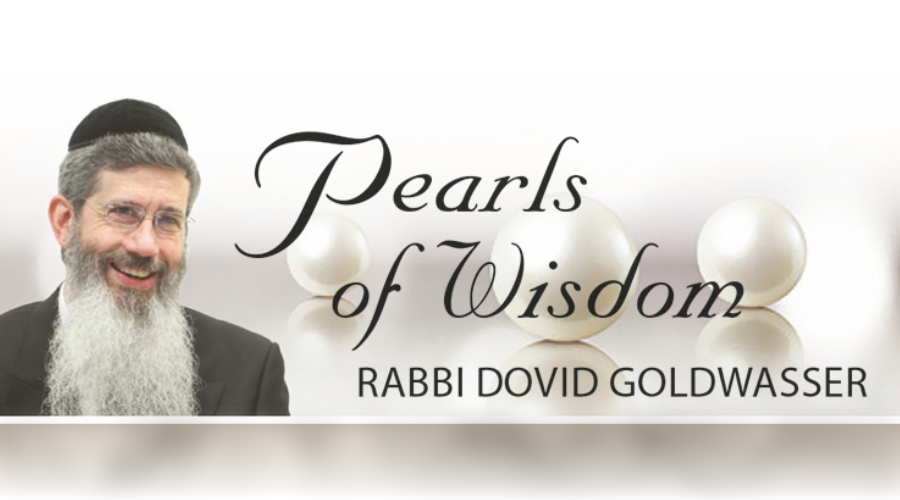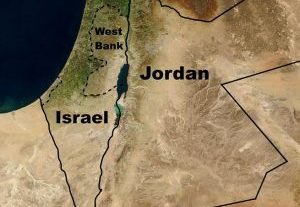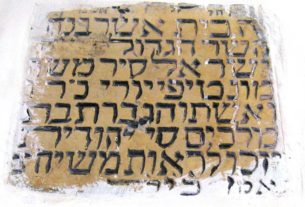“When they related to him all the words Yosef had spoken to them, and he saw the wagons that Yosef had sent to transport him, the spirit of their father Yaakov was revived” (Bereishis 45:27).
Rashi tells us that these wagons hinted to the topic – eglah arufah – that Yosef had been learning with his father before he had been kidnapped by his brothers. The words “and he saw the wagons that Yosef had sent” indicate that Yaakov realized that they had been sent by Yosef, not Pharaoh. Yosef was communicating to his father that he was the very same Yosef who had left 22 years earlier. He hadn’t been influenced by anything he was exposed to in Mitzrayim.
‘);
_avp.push({ tagid: article_top_ad_tagid, alias: ‘/’, type: ‘banner’, zid: ThisAdID, pid: 16, onscroll: 0 });
The Zera Shimshon (Rabbi Shimshon Chaim ben Rabbi Nachman Michael Nachmani) asks: How exactly did the eglah arufah reminder prove to Yaakov that Yosef had remained righteous?
The Torah (Devarim 21) states that an eglah arufah is brought when a murdered person is found outside a city. The elders of the closest city decapitate a heifer as atonement and proclaim that the residents of their city did not kill the victim or neglect their obligation to feed and escort him. Our sages (Sotah 46b) derive from this declaration that when a guest is escorted out of a city, he is protected from harm along his journey.
We can be certain, though, that Yaakov Avinu escorted Yosef, his ben zekunim (as he was concerned about his safety and wellbeing). Thus, the Zera Shimshon writes, when the brothers returned and said, “A wild beast devoured him,” Yaakov was skeptical.
But then he recalled a teaching, which was later recorded in the Talmud (Berachos 5a): “Hashem oppresses with suffering one whom He loves very much, as it says (Tehillim 94:12), ‘Happy is the man whom You punish, Hashem…’” So Yaakov understood that Hashem had sent yesurim shel ahavah (afflictions of love), which only individuals who are on a very elevated spiritual level – people who can meet the challenge and emerge even more lofty – receive.
In sending him wagons, Yosef wanted to tell Yaakov that he had, indeed, been appropriately escorted when he set out on his journey and that he had merited the adversity of one whom Hashem loves dearly. He also wanted to assure Yaakov Avinu that he was the same Yosef – righteous, devout and pure – who had been studying with him the topic of eglah arufah before his departure.
The Michtav M’Eliyahu, Rabbi Eliyahu Dessler, notes that the greatest danger of galus is assimilation. We may be influenced by the mores of the societies in which we live and wish to look or act like everyone else. Even if a person avoids the temptation to do so, his perspective of the world in which he lives may change and he may fall short in the nisayon of galus.
Each day presents new challenges, and one must be extremely careful to avoid sinking deeper into the darkness of exile, thereby distancing himself from the words of Hashem and the ultimate redemption.
R’ Moshe Lintzizer, a wealthy businessman and talmid chacham, was a highly respected individual living in Poland. He was extremely successful, and many came to him seeking guidance and a donation.
Then, without warning, R’ Moshe’s business affairs suffered a downturn. He experienced one loss after another and was ultimately reduced to poverty. He had numerous debts and could no longer support his family.
Before setting off to seek his fortune elsewhere, R’ Moshe traveled to consult with his Rebbe, R’ Simcha Bunim of Peshischa (1767-1827). R’ Simcha Bunim advised him to go to Amsterdam, the home of the tzaddik R’ Shaul Lowenstamm, a descendant of the Chacham Tzvi who was also related to R’ Moshe. R’ Shaul would be able to help him acclimate to his new home and help him find a profitable livelihood, he said.
However, R’ Simcha Bunim insisted that if R’ Moshe decided to settle there, he should promise to strictly adhere to his Jewish mode of dress. At that time, some Jews weren’t very scrupulous in following the Torah way of life and had discarded the traditional yarmulke for a new design that sported a small button on top. “You will be far away from me and your community; make sure to guard each mitzvah with all your might,” cautioned the Rebbe. With those parting words, the tzaddik wished him great success.
With his vast connections, R’ Shaul was indeed able to help R’ Moshe find a new source of income. Remaining true to the words of his Rebbe, R’ Moshe prospered in all his ventures, and, after a number of years, he was ready to return home to Poland. He had accumulated a fortune – more than enough to pay off all his debts.
Before traveling to his hometown, R’ Moshe stopped to visit R’ Simcha Bunim, who was already elderly and had lost his eyesight. The tzaddik embraced him and welcomed him warmly. He then lifted the hat of R’ Moshe and touched his yarmulke. He said, “How fortunate are you that you have kept the Jewish tradition to the utmost. You have come back intact and whole. May the One who provides parnassah in this world ensure that you are never in need again.”
‘);
_avp.push({ tagid: article_top_ad_tagid, alias: ‘/’, type: ‘banner’, zid: ThisAdID, pid: 16, onscroll: 10 });




